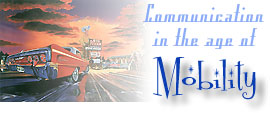
Office: HGH 210; phone: (408) 924-5378
Email: wooda@email.sjsu.edu
Web: http://www.sjsu.edu/faculty/wooda
 |
Dr. Andrew Wood Office: HGH 210; phone: (408) 924-5378 Email: wooda@email.sjsu.edu Web: http://www.sjsu.edu/faculty/wooda |
Introduction
: Course Calendar : Policies
: Readings
Assignments : Check Your Grades : Return
to Frontpage
Reading: Kincaid, J. (1989). A small place. New York: Plume. (pp. 1-37)
Study guide: Focus on (1) identity of Kincaid's island, (2) why the library does not function, (3) the cliché of the crowd, (4) the origin of many Antiguan street names, (5) the reason why many Antiguans distrust capitalism
In part one of Jamaica Kincaid's A Small Place (pp. 1-37, Plume edition) the author positions the reader as a tourist who has slipped easily through customs, taking a taxi through Antigua. Kincaid notes that the tourist is unable to recognize the poverty and corruption that make her island a "paradise" for visitors. Tourists can't, for example, notice the subtle processes through which colonial occupation's contributions to the European economy have been whitewashed: "Not only did we have to suffer the unspeakableness of slavery, but the satisfaction to be had from 'We made you bastards rich' is taken away too" (p. 10).
Arriving at the hotel, the visitor meets other foreigners, but few Antiguans. The visitor would be surprised, Kincaid notes, if s/he realized how hated tourists are. Why? Kincaid suggests that the power of the tourist to make sport and recreation out of banality is the cause of this hatred:
Every native of every place is a potential tourist, and every tourist is a native of somewhere. Every native everywhere lives a life of overwhelming and crushing banality and boredom and desperation and depression, and every deed, good and bad, is an attempt to forget this. Every native would like to find a way out, every native would like a rest, every native would like a tour. But some natives - most natives in the world - cannot go anywhere. They are too poor. (p. 18)
Kincaid describes a most powerful tool of colonialism that endures even after the dissolution of England's control over Antigua: language: "Isn't it odd that the only language I have in which to speak of this crime is the language of the criminal who committed the crime" (p. 31)? The primary power of language as an oppressive tool, according to Kincaid, is its ability to naturalize foreign ideologies and abstractions (people as capital), making them unassailable - except through the use of another form of discourse, perhaps even the language of violence.
Supplemental Website
Deepika Bahri's web-essay on Jamaica Kincaid <http://www.emory.edu/ENGLISH/Bahri/Kincaid.html>: " Although Kincaid has faced heavy criticism for her angry tone and simple writing style in A Small Place, she wears her anger like "a badge of courage."
Activity
Consider Kincaid's argument about the motivation for tourism, the desire to escape one's banal existence. Select an excerpt from a recent film that illustrates this claim. For your Show and Tell activity, identify two or three key scenes that illustrate Kincaid's claim.